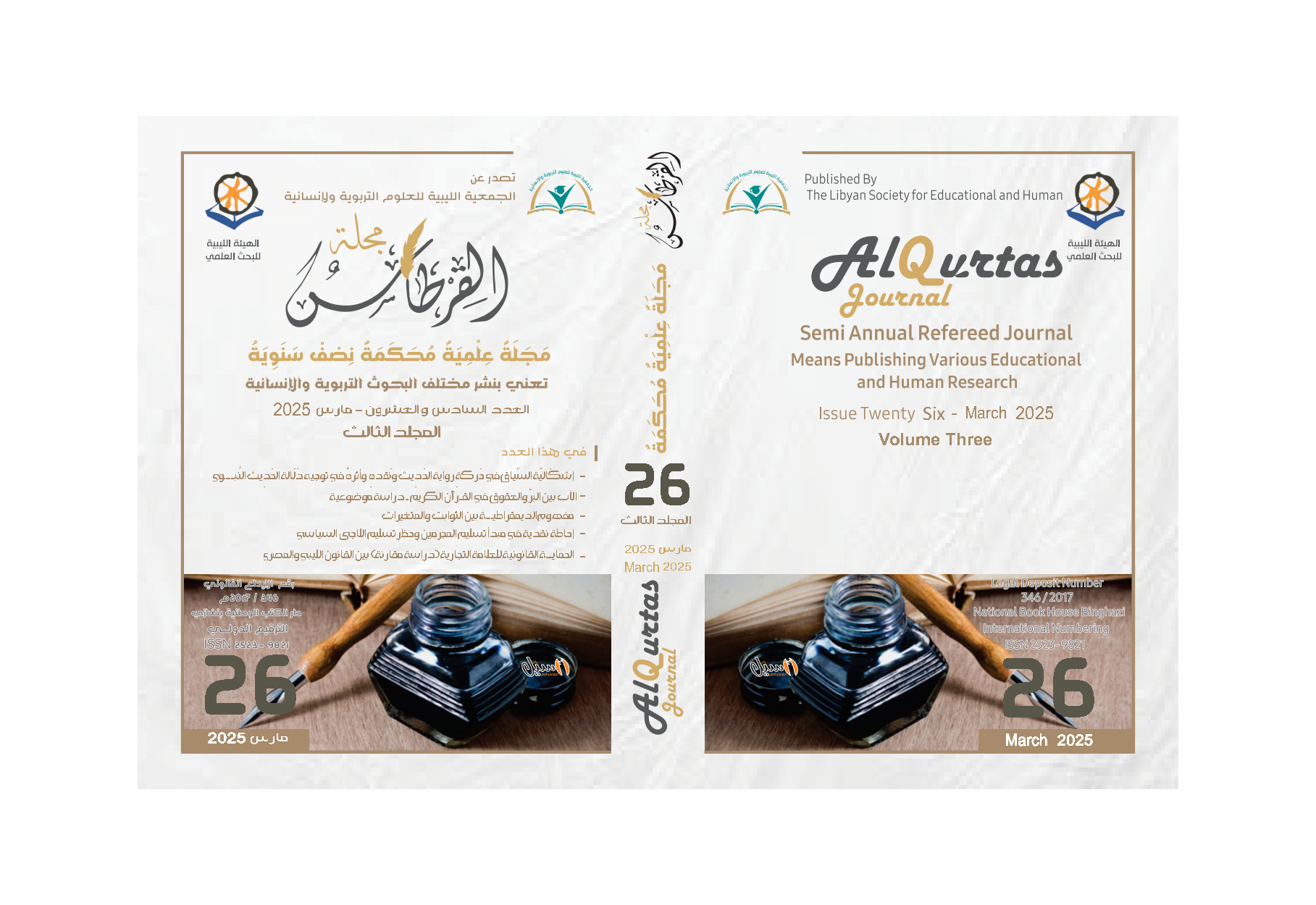حقيقة الابتلاء في القرآن والسنة
Main Article Content
Abstract
The importance of this research lies in its discussion of a crucial topic that affects the life of every Muslim: the trial (or test), which is considered an essential part of Allah’s divine laws on earth. The research problem revolves around the misconception of trials, where people view them as a punishment from Allah or an omen of misfortune, while they may, in fact, serve as a means to draw closer to Allah and purify the soul, and not necessarily a sign of Allah’s anger or punishment. This study aims to clarify the concept of trial in the Qur'an and the Sunnah of the Prophet Muhammad (PBUH), how the Prophet and his companions dealt with trials, the wisdom behind them, and the distinction between different types of trials, whether they involve good or bad. The study also seeks to provide practical guidance for Muslims and raise awareness on how to be patient in the face of trials and the importance of gratitude for blessings. The study relies on the inductive method in tracking everything related to trials and the descriptive method in explaining the meanings and terms of trials, analyzing texts, and deriving lessons and divine wisdom from trials. The study concluded that trials are a divine tradition representing a test for individuals and communities, and they are part of the divine wisdom aimed at strengthening faith, enhancing patience, and developing spiritual and moral character. Trials remind us that this life is not permanent and that the true reward is in the Hereafter.

